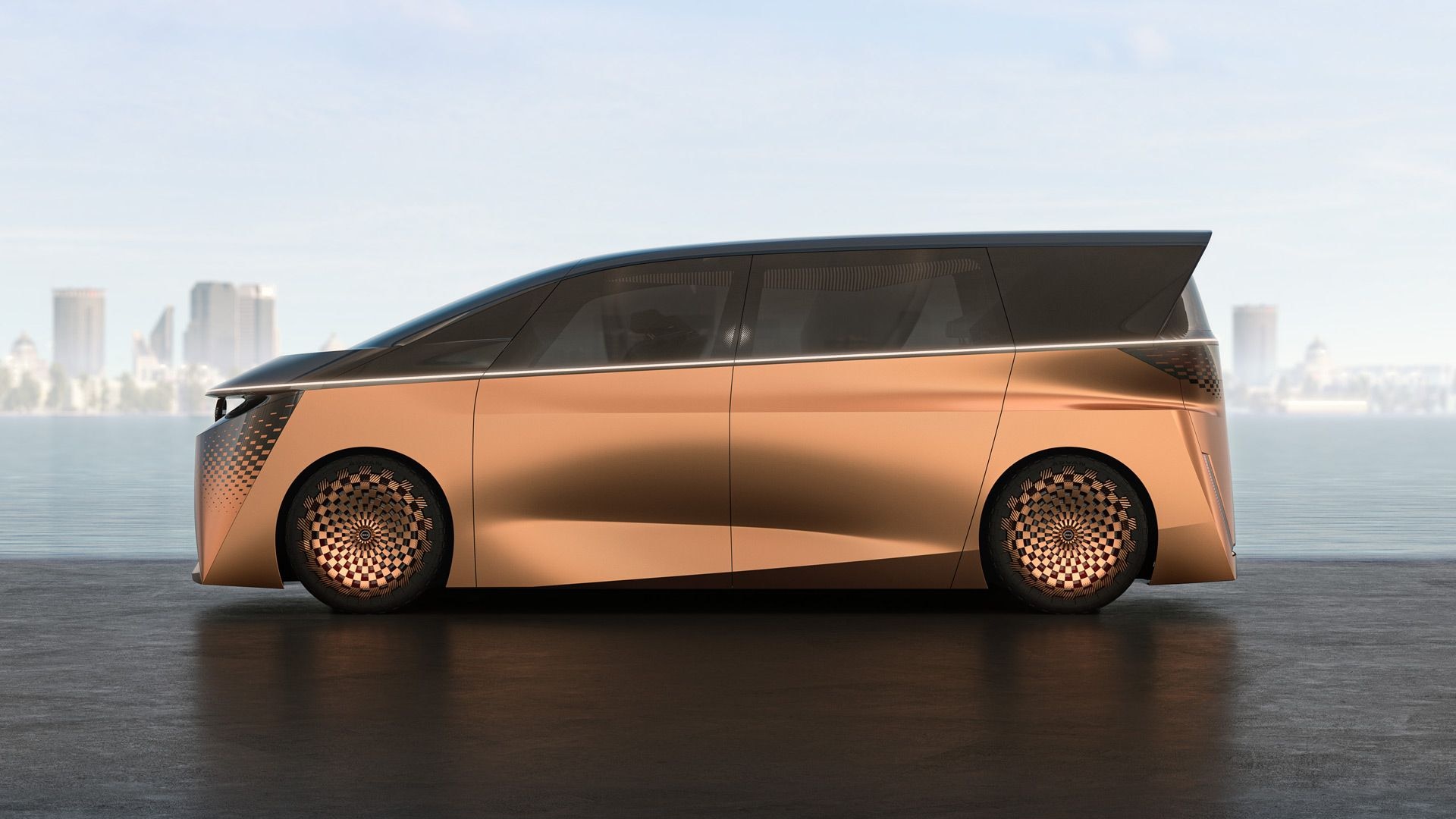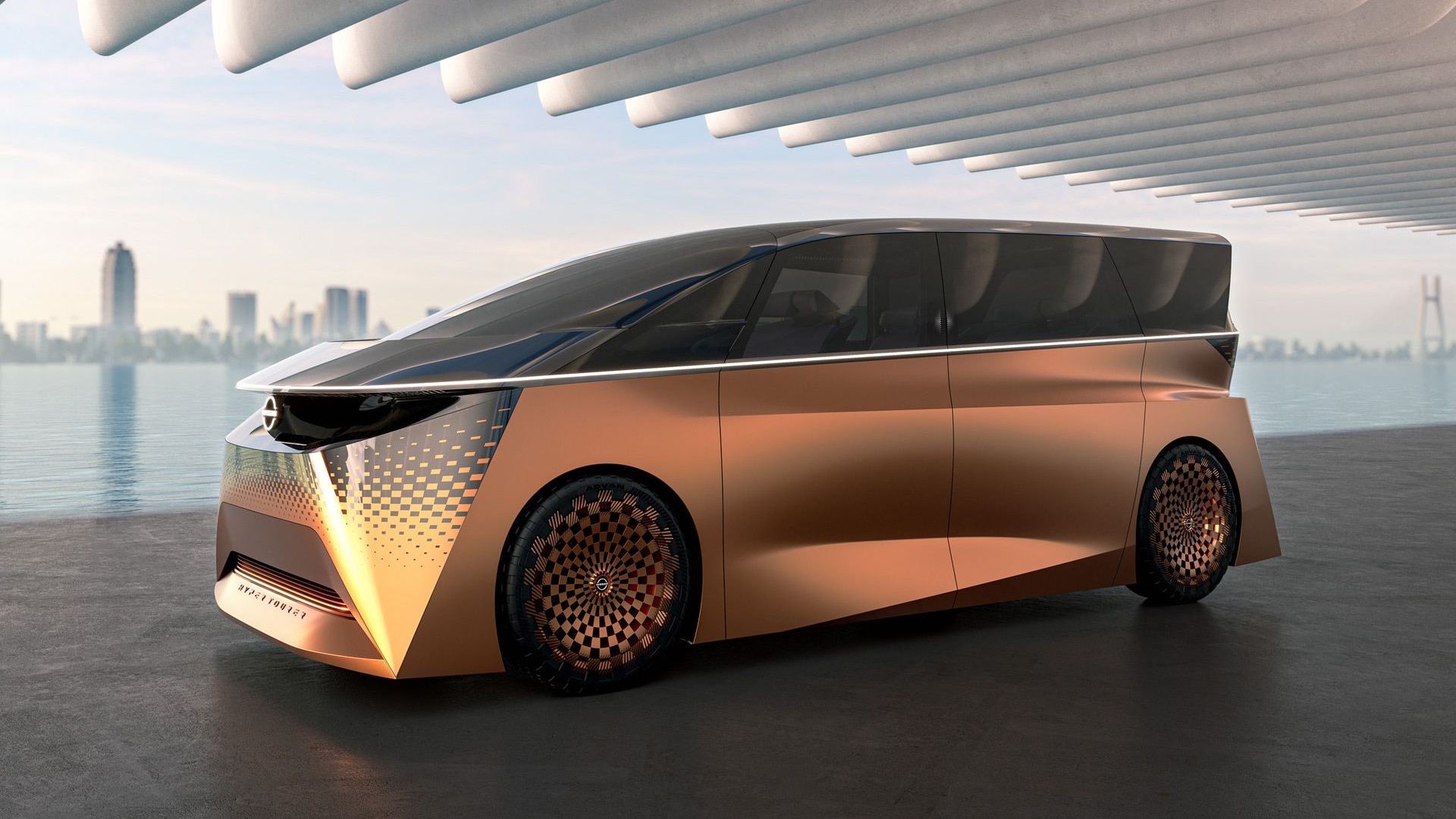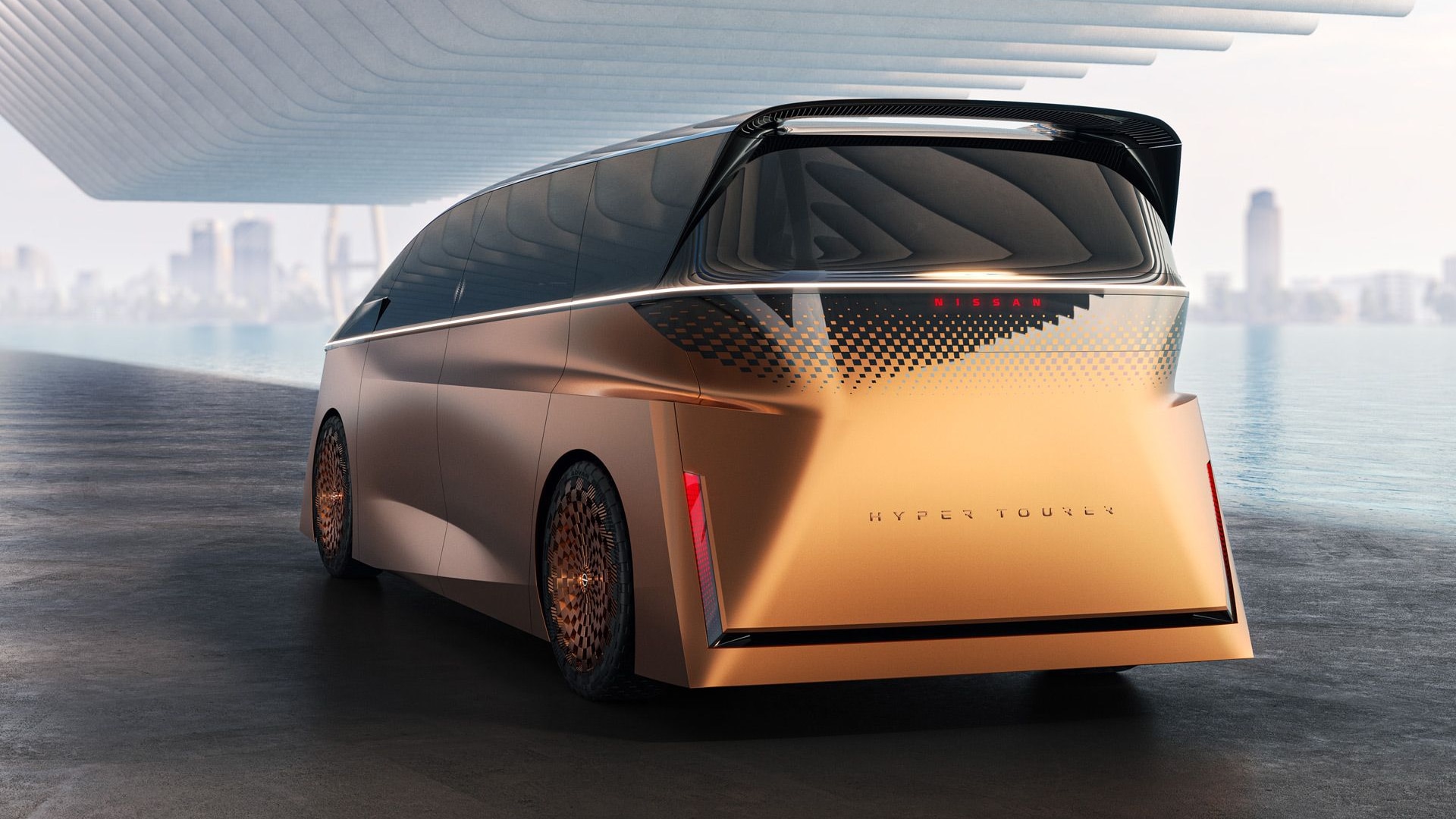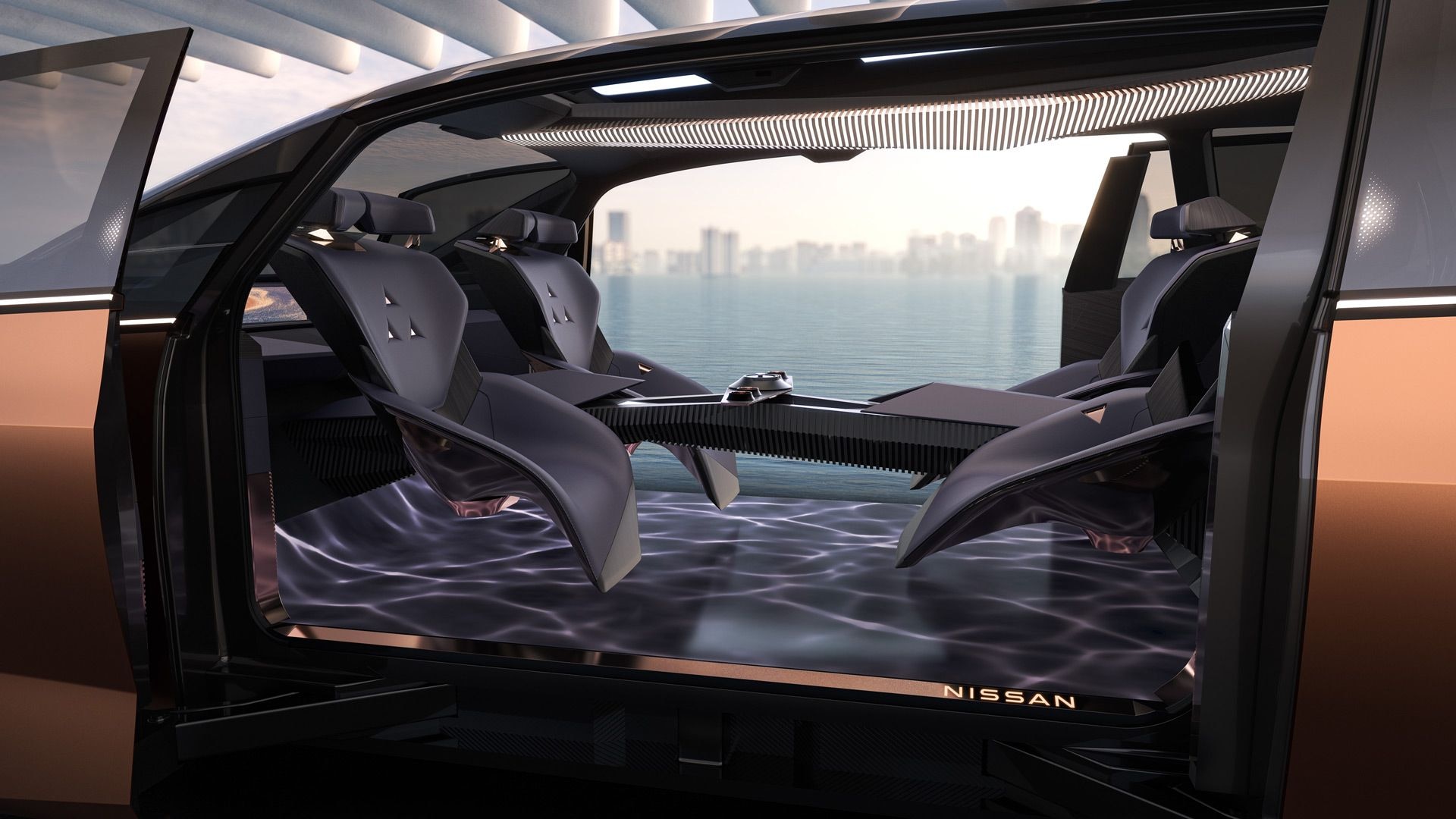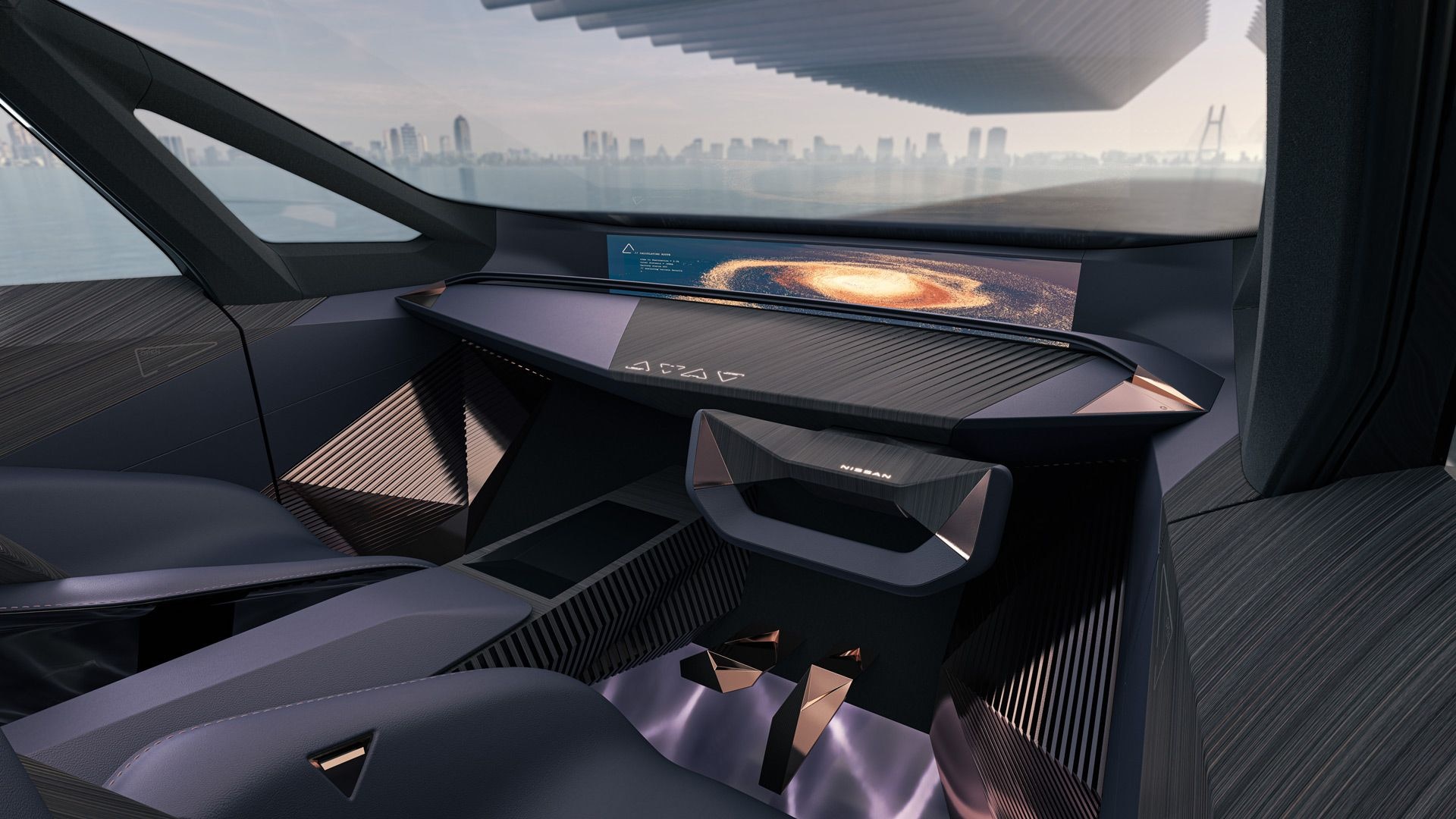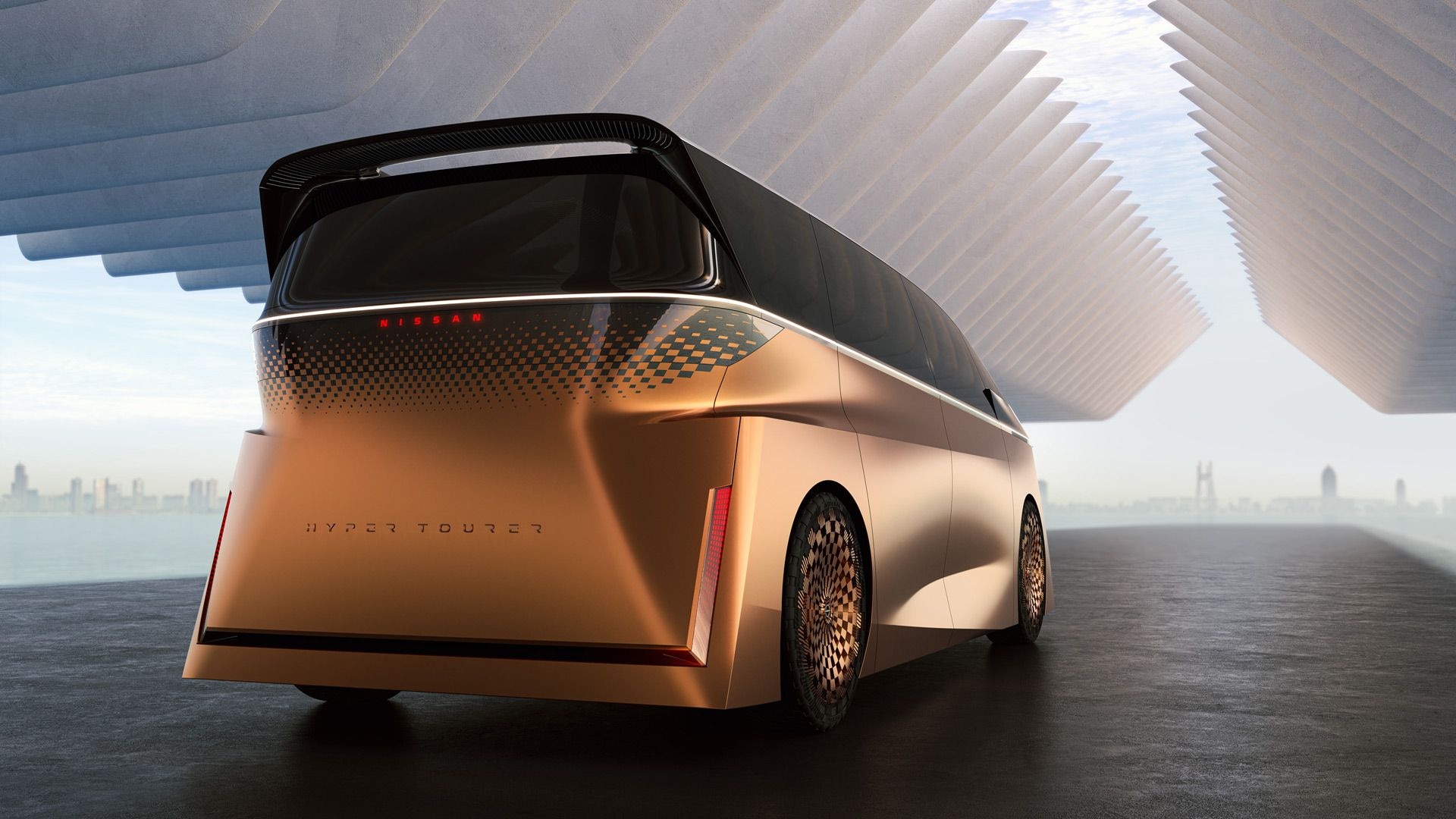Nissan has revealed the third of four advanced EV concepts headed for a debut at the Tokyo auto show later this month.
Called the Hyper Tourer concept, it fits in alongside the Hyper Urban and Hyper Adventure concepts. It reconceives the minivan, assuming a future in which autonomous-driving technology will allow people to enjoy the company of others in transit, and in which innovative EV packaging is allowed by solid-state batteries.
Nissan sees solid-state batteries as a key to making electric SUVs and pickups viable, and it’s working on its own proprietary all-solid-state cells, aiming for market availability in 2028 and a pilot line as soon as 2024. It’s included in the automakers’ Ambition 2030 plan that calls for 15 all-electric vehicles by 2030.
Nissan sees the Hyper Tourer as a hub for vehicle-to-everything (V2X) charging, providing backup power and energy storage for home, business, and travel use.
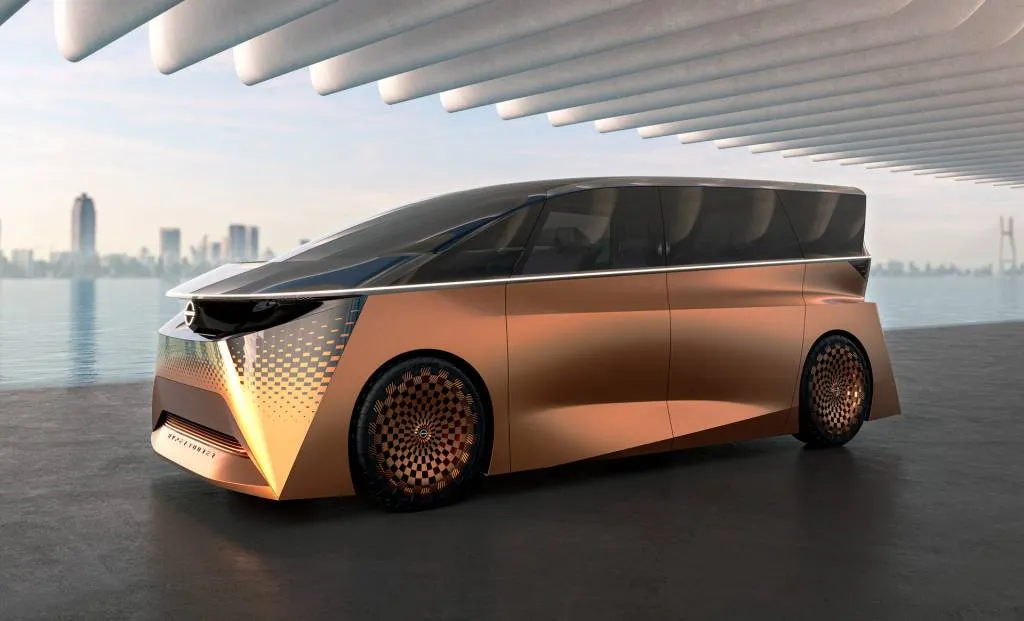
Nissan Hyper Tourer concept
The design combines smooth panels with several deep diagonal creases on each side, said to be both for aerodynamics and for an impression of the smoothness of the driving/riding experience. A white beltline incorporates the headlights and other lamps, while the wheels follow a Japanese kumiko pattern.
Seating in the Hyper Tourer is focused around the idea of a group road trip, allowing those in front—including the driver—to swivel around and face those in back.
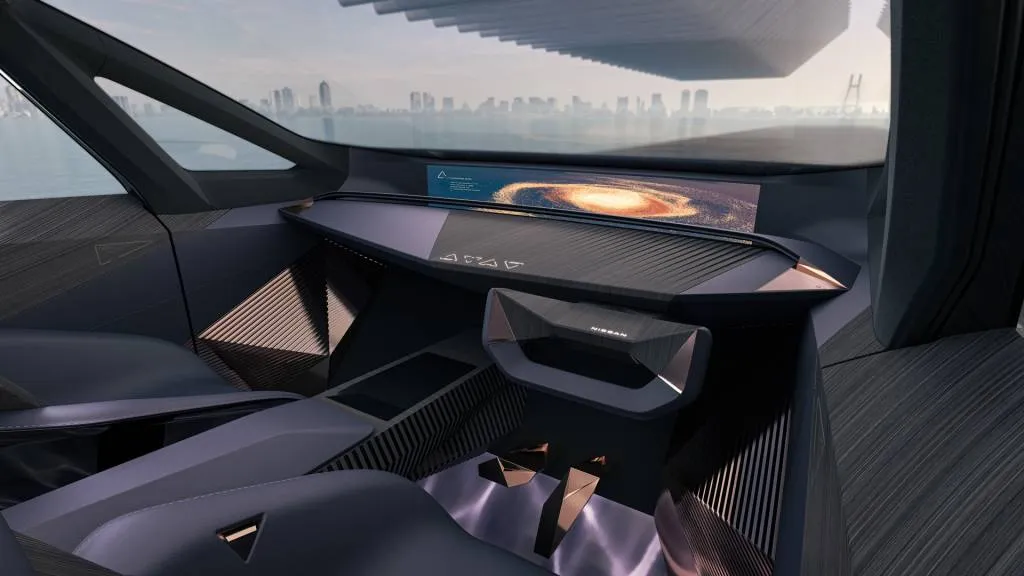
Nissan Hyper Tourer concept
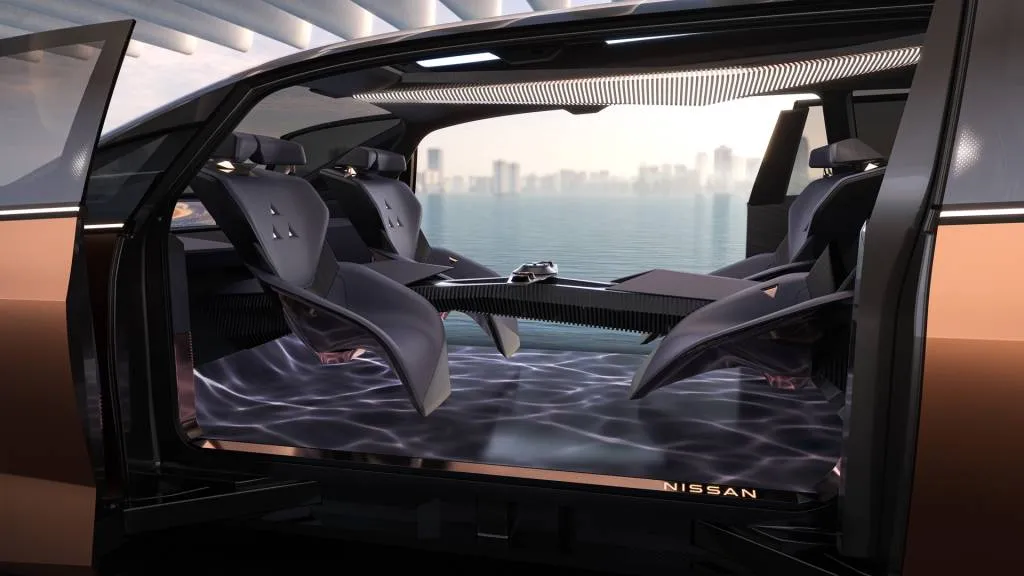
Nissan Hyper Tourer concept
The cabin gets soft, patterned lighting from an overhead console, and an LED panel embedded in the floor displays a calming image, appearing a bit like the vehicle version of a desktop theme. Those in the rearmost seats get a wearable display for controlling navigation and audio, and an AI-based system studies occupants’ biometric info and delivers corresponding music and lighting.
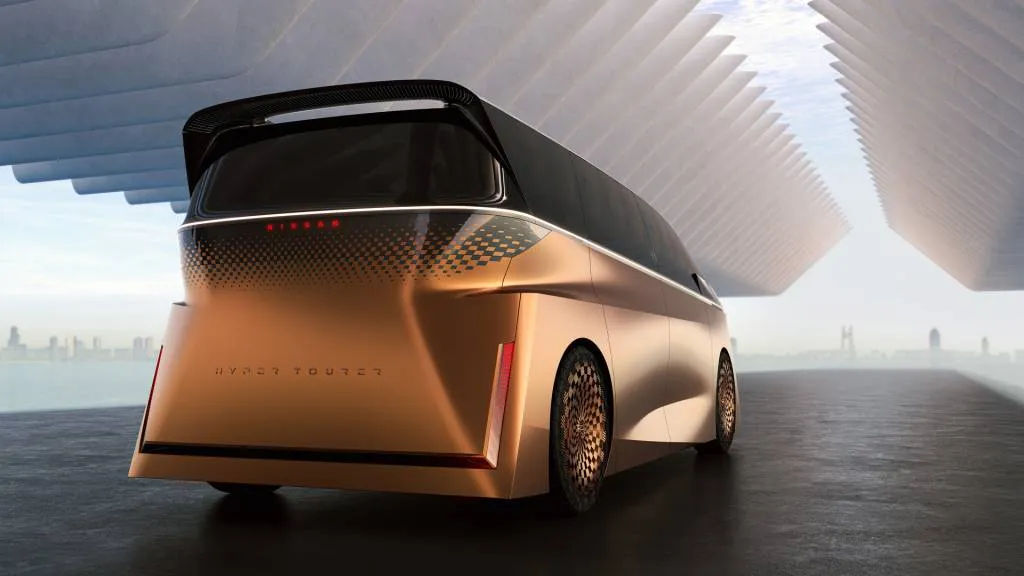
Nissan Hyper Tourer concept
Nissan says that the solid-state batteries underneath would allow the especially innovative packaging, with an ultra-low center of gravity. A version of the Nissan Ariya e-4orce all-wheel-drive system provides propulsion, keeping the van flat during acceleration and deceleration.
The automaker has made no comment yet about whether it plans to build this or any of the EVs in this suite of concept vehicles. Expect more details with their physical debut on Oct. 25.
